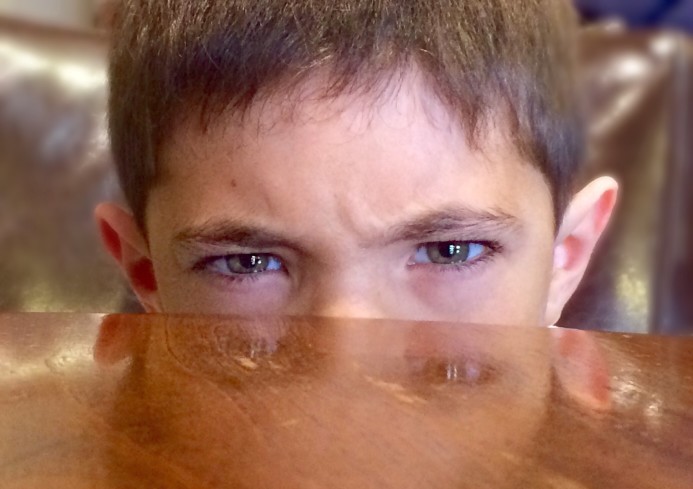Can a young child have suicidal thoughts? And can they really mean they want to die, or are they just trying to get attention?
I wish I had read this story when my son was young. When he was ten years old, I clearly remember him telling me he wanted to kill himself. I asked the school counselor to talk to him, but he was such a busy man, he never got around to it. I didn’t hear my son bring it up again, so I let it go and never followed up.
But whatever caused him to feel that way didn’t go away. When he was a teenager, he mentioned it again. I did not believe he really meant it. I told him we loved him, and his family would miss him very much if he were gone.
What a fool I was back then. If I had known then what I know now, my only son might be alive today. I know now that disregarding his suicidal comments and telling him he would be missed was the exact opposite of what I should have done.
Here is a story about a mom who did take action when her young son said he wanted to die. At first read, I thought our stories did not follow similar paths since my son rarely showed defiance or had angry outbursts in public. Her son had “issues” when he was little.
Mine didn’t. He was always a sweet, lovable kid. But the truth is he did have angry outbursts at home. I just called them temper tantrums and figured he’d outgrow them. He did seem overly anxious sometimes and worried a lot about certain things. At that time, I did not consider it likely that children had mental health disorders. Actually, I didn’t think much about mental health at all.
Fortunately, awareness about mental health has increased in recent years, and people are talking about it more than they ever have before. We might not understand what causes it or how to cure it, but we can recognize the symptoms and find treatment.
I know now that my son probably endured diagnosable anxiety and depression from age ten until he took his life at 21. He no longer suffers, but his dad and I miss him every single day of our lives. We both hope that by sharing our loss, we can teach parents and teachers what to look for and to recognize that children can experience mental health disorders at a very young age.
For more information about suicide, visit the American Foundation for Suicide Prevention (AFSP).
 A
Culture of Caring: A Suicide Prevention Guide for Schools (K-12) was
created as a resource for educators who want to know how to get started and
what steps to take to create a suicide prevention plan that will work for their
schools and districts. It is written from my perspective as a school principal
and survivor of suicide loss, not an expert in psychology or counseling. I hope
that any teacher, school counselor, psychologist, principal, or district
administrator can pick up this book, flip to a chapter, and easily find helpful
answers to the questions they are likely to have about what schools can do to
prevent suicide.
A
Culture of Caring: A Suicide Prevention Guide for Schools (K-12) was
created as a resource for educators who want to know how to get started and
what steps to take to create a suicide prevention plan that will work for their
schools and districts. It is written from my perspective as a school principal
and survivor of suicide loss, not an expert in psychology or counseling. I hope
that any teacher, school counselor, psychologist, principal, or district
administrator can pick up this book, flip to a chapter, and easily find helpful
answers to the questions they are likely to have about what schools can do to
prevent suicide.


